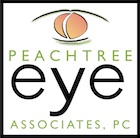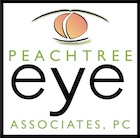
At Peachtree Eye Associates it is our goal to preserve vision one patient at a time by providing thorough comprehensive eye evaluations in a friendly and comfortable atmosphere. It is our promise to inform and educate our patients on all pertinent eye conditions and treatments available to achieve and/or maintain good eye health.
Our doctors diagnose and treat nearsightedness, farsightedness, astigmatism and presbyopia. We also provide diagnosis, treatment and medical referrals for all eye conditions such as pink eye, red eye, dry eye, blepharitis, styes, ocular allergies, eye injuries, cataracts, diabetic retinopathy, refractive surgery, corneal disease, glaucoma, macular degeneration, retinal detachment, flashes/floaters and more.
To learn more about the services we provide, please review our Book of Services below.



Your doctor will check your eye's reaction to light, measure pupil size, and assess eye alignment and muscle balance. Your doctor will evaluate how your eyes perform as well as other important vision functions.


This can lead to early detection of common diseases, such as glaucoma, diabetes, macular degeneration, and even cancer. The exam is quick, painless, and may not require dilation drops.







Retinal Exams with Optomap Technology
The Optomap Retinal Exam is used by your eye doctor to get an ultra-wide field view of the retina (the back of the eye) without pupil dilation! Read below for more information.


